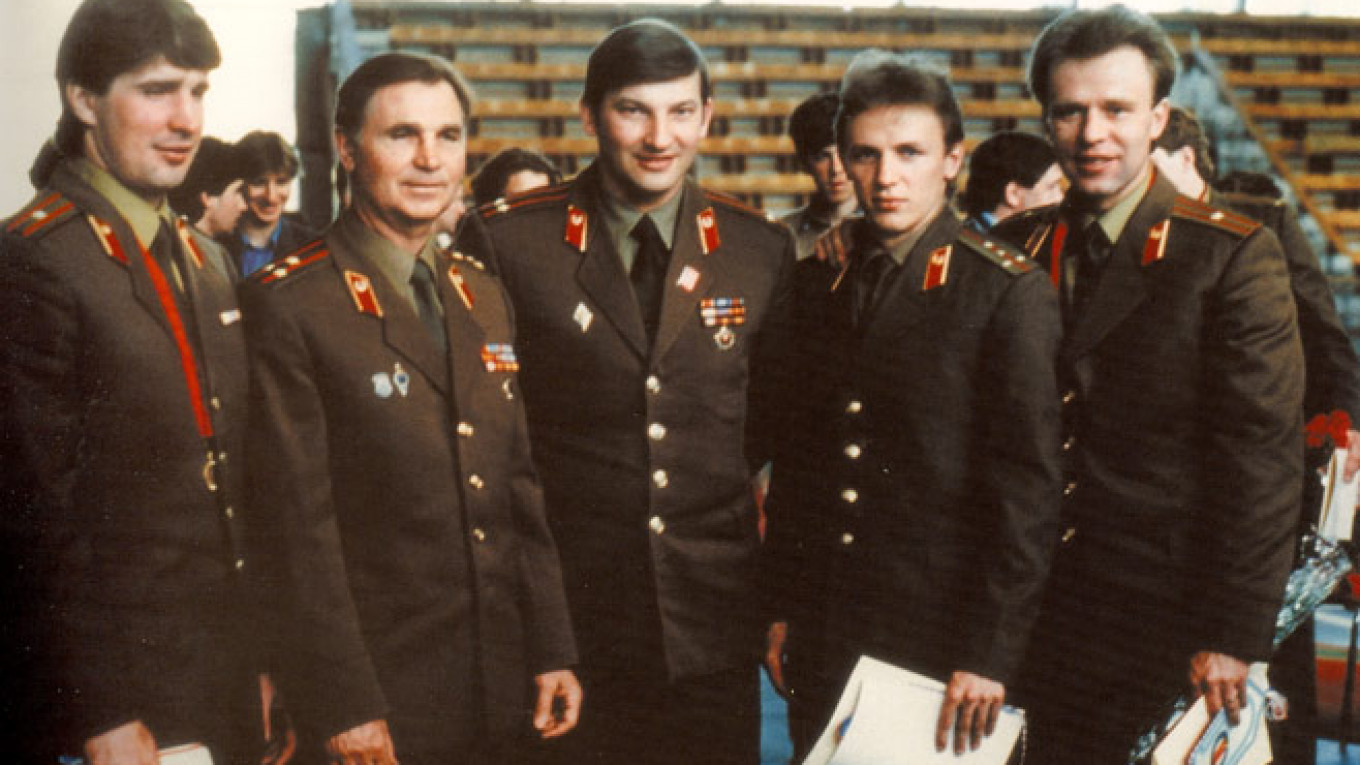"Red Army," a documentary about the Soviet Union's legendary national hockey team, has finally reached movie theaters in Russia. The film premiered at the Moscow International Film Festival in June 2014 and enjoyed a limited release in the U.S. and Europe earlier this year.
The film focuses on the lives of several well-known hockey players, mostly the members of the famous "Russian Five" who dominated Soviet hockey for decades: Vyacheslav Fetisov, Alexei Kastanov, Sergei Makarov, Igor Larionov, and Vladimir Krutov. Fetisov, known in the West as Slava, is the main focus of the movie and its narrator. The Moscow Times talked to the film's director, Gabe Polsky, about the film and its long-awaited Russian release.
Q: Let's start with the obvious question — why would a young director from Chicago want to make a movie about Soviet hockey?
A: I played hockey really seriously and my parents are from the former Soviet Union, from Ukraine. Basically, I'd seen the Soviet Union play on VHS tapes and it made a huge impression on me. I was just amazed at the style of hockey and what they were doing on the ice, how creative they were.
Frankly, it was just so much more interesting to watch than the style of hockey that was being taught in the United States and Canada. It made me want to learn a lot more about the team and also the history of the country.
So it started from there. Then I did more research about the Red Army team and what they were going through. That's when I realized it could be a very deep story about Russia and the Soviet Union and I could use hockey as a metaphor for a much bigger story.
Q: Why did you choose Vyacheslav Fetisov as the protagonist?
A: First, out of all the people I interviewed he probably spoke the best English. Second, his story was ideal. His personal story compared to the rest of them was the most interesting to me. His interview turned out to be the most attractive, and I could anchor the whole story on it.
But it's really not about Fetisov. I used his story to tell a story about everybody else, about his friends and about Russia. His story seemed to be most appealing because it was the most dynamic of all of them. He was the captain of the team, he openly rebelled, and there's a great arc in his story.
Q: Why is it a documentary rather than a feature film?
A: You just don't get as much power from a feature film as from a documentary, from real people who have experienced it. Here I was able to tell a story that felt real but at the same time I used a technique that made it feel like a narrative film in the way the story unfolds.
I wanted to tell an exciting story, entertaining but at the same time emotional: sad, happy and tragic. Plus, nobody would finance a feature film about Soviet hockey.
I understand that there is an issue with people wondering if the movie is "patriotic" enough. But a real movie should be neutral, not patriotic for the sake of being patriotic, because that's not an interesting movie. That's propaganda, not a real movie.
My movie is not pro-American or anti-Russian. It's neutral, but also truthful. It says both good and bad things about all aspects of the story.
Q: Did you expect a wider release?
A: With a documentary you can't expect a wide release unless you are delusional. At the same time I did have hope that this film was a special case. I also hoped that it would go on television so I would get to everybody in Russia. I think it's still possible. Months ago Channel One announced that they would show the film. Let's wait and see.
Contact the author at artsreporter@imedia.ru
A Message from The Moscow Times:
Dear readers,
We are facing unprecedented challenges. Russia's Prosecutor General's Office has designated The Moscow Times as an "undesirable" organization, criminalizing our work and putting our staff at risk of prosecution. This follows our earlier unjust labeling as a "foreign agent."
These actions are direct attempts to silence independent journalism in Russia. The authorities claim our work "discredits the decisions of the Russian leadership." We see things differently: we strive to provide accurate, unbiased reporting on Russia.
We, the journalists of The Moscow Times, refuse to be silenced. But to continue our work, we need your help.
Your support, no matter how small, makes a world of difference. If you can, please support us monthly starting from just $2. It's quick to set up, and every contribution makes a significant impact.
By supporting The Moscow Times, you're defending open, independent journalism in the face of repression. Thank you for standing with us.
Remind me later.






